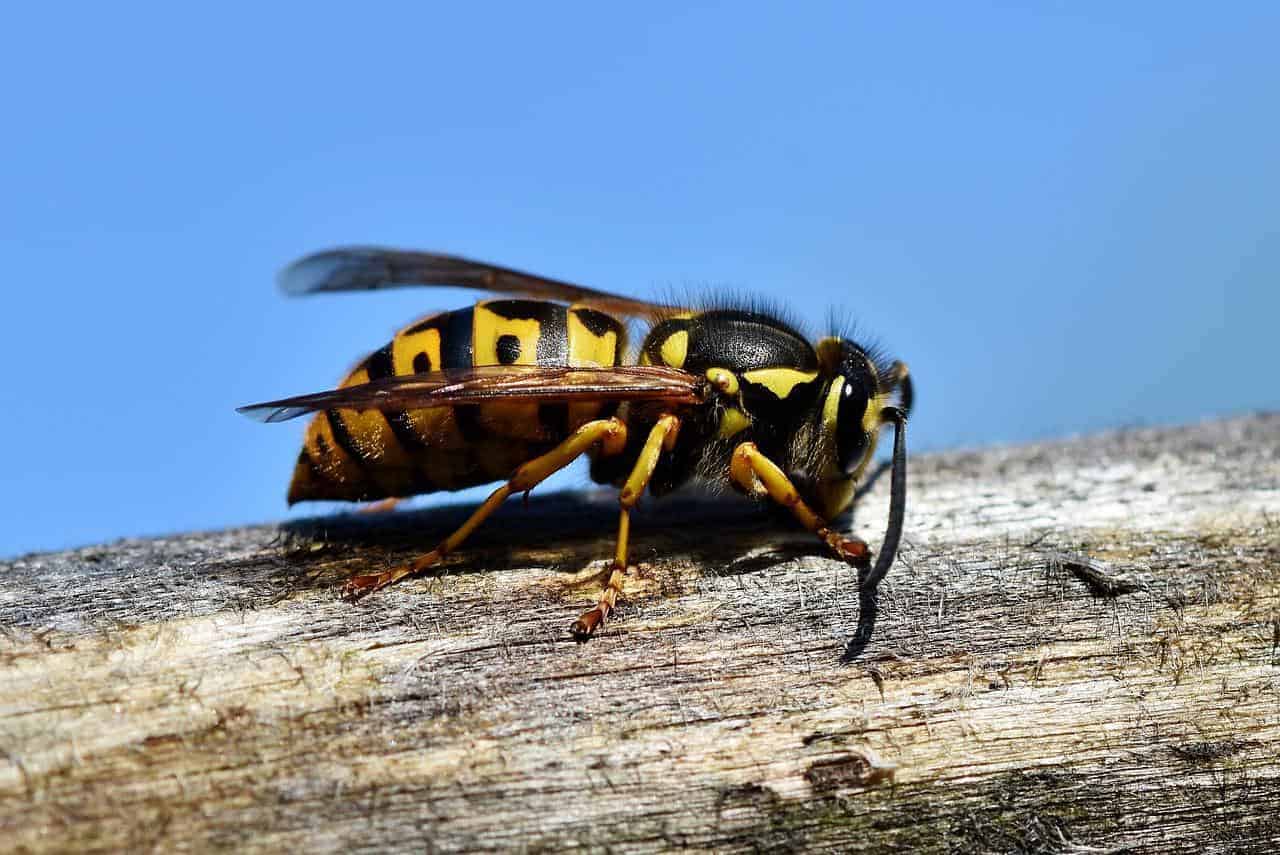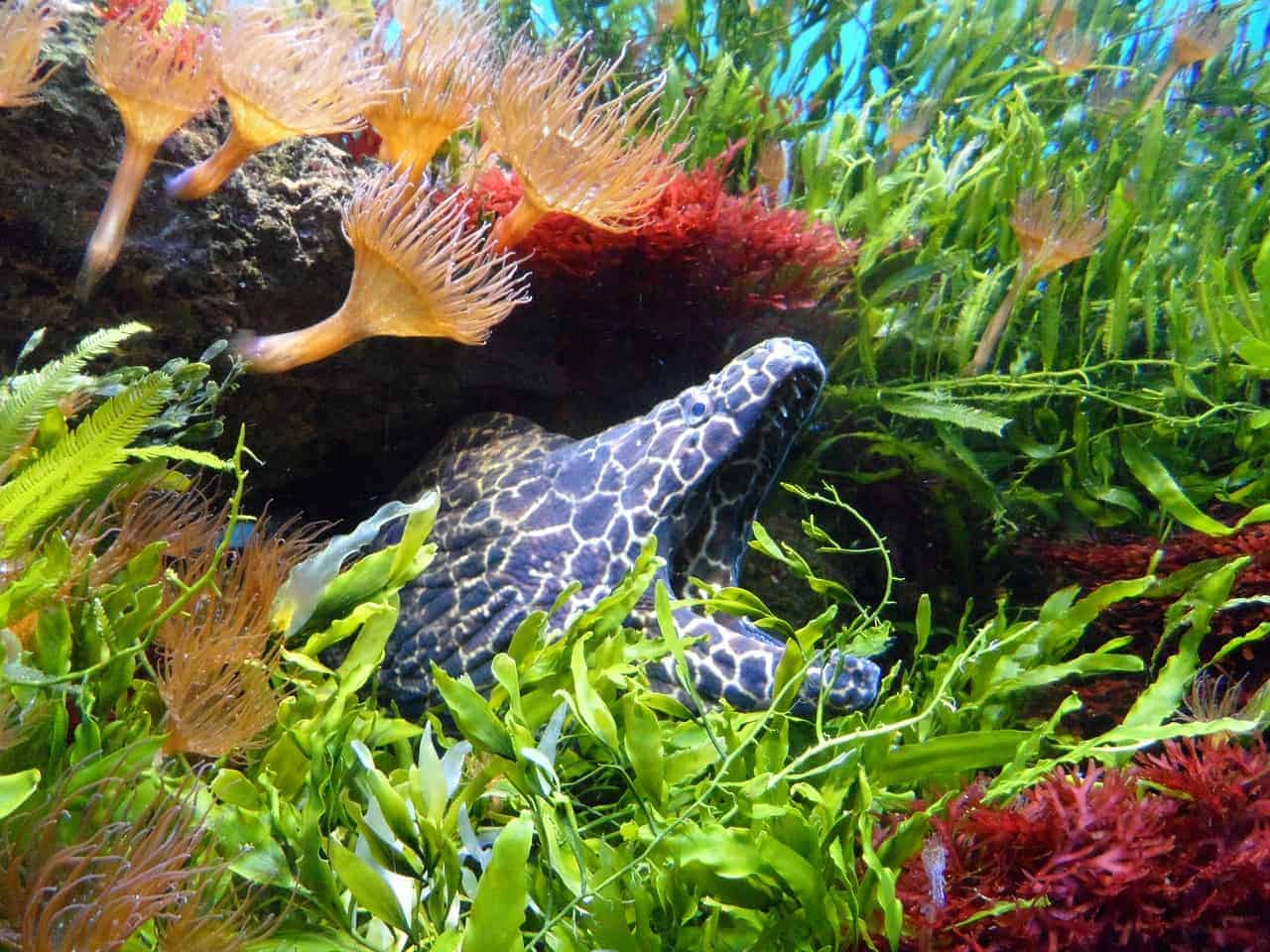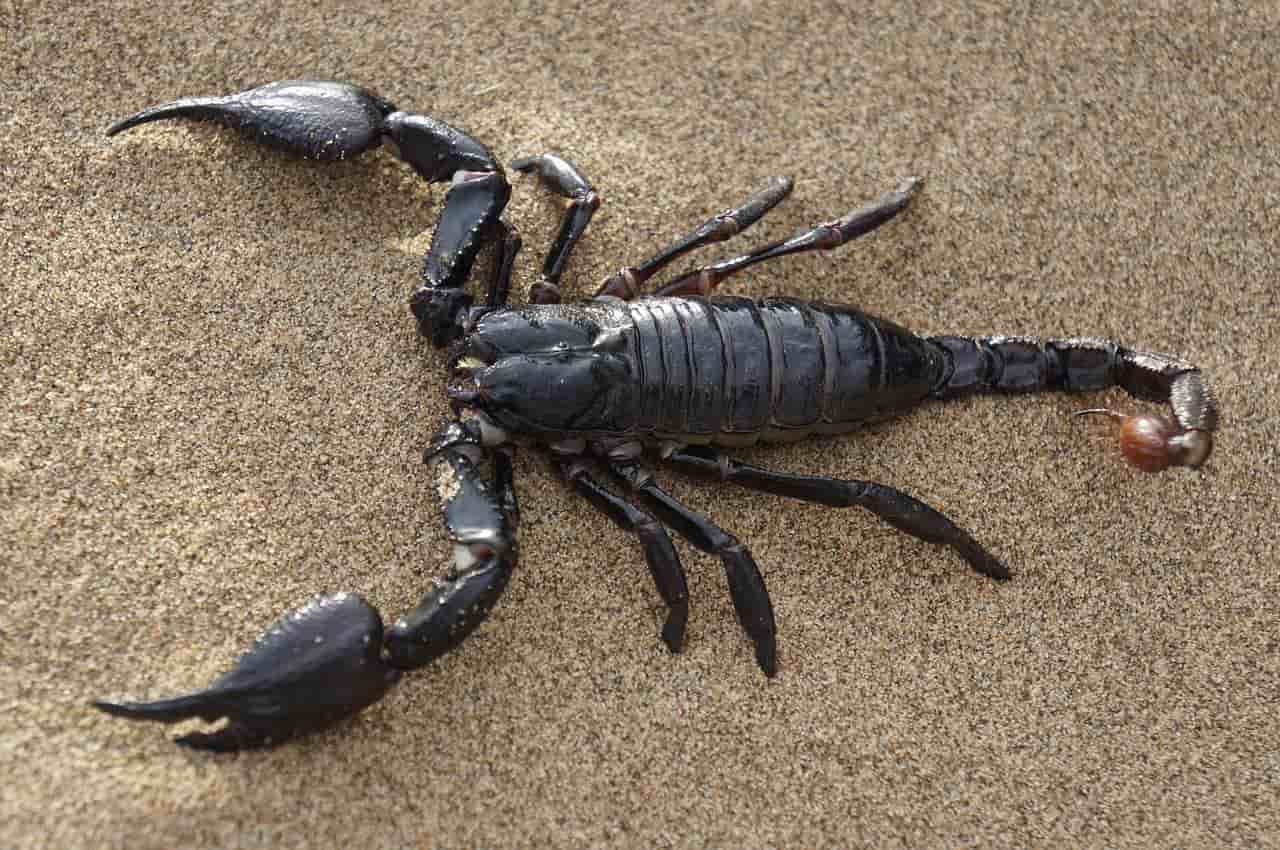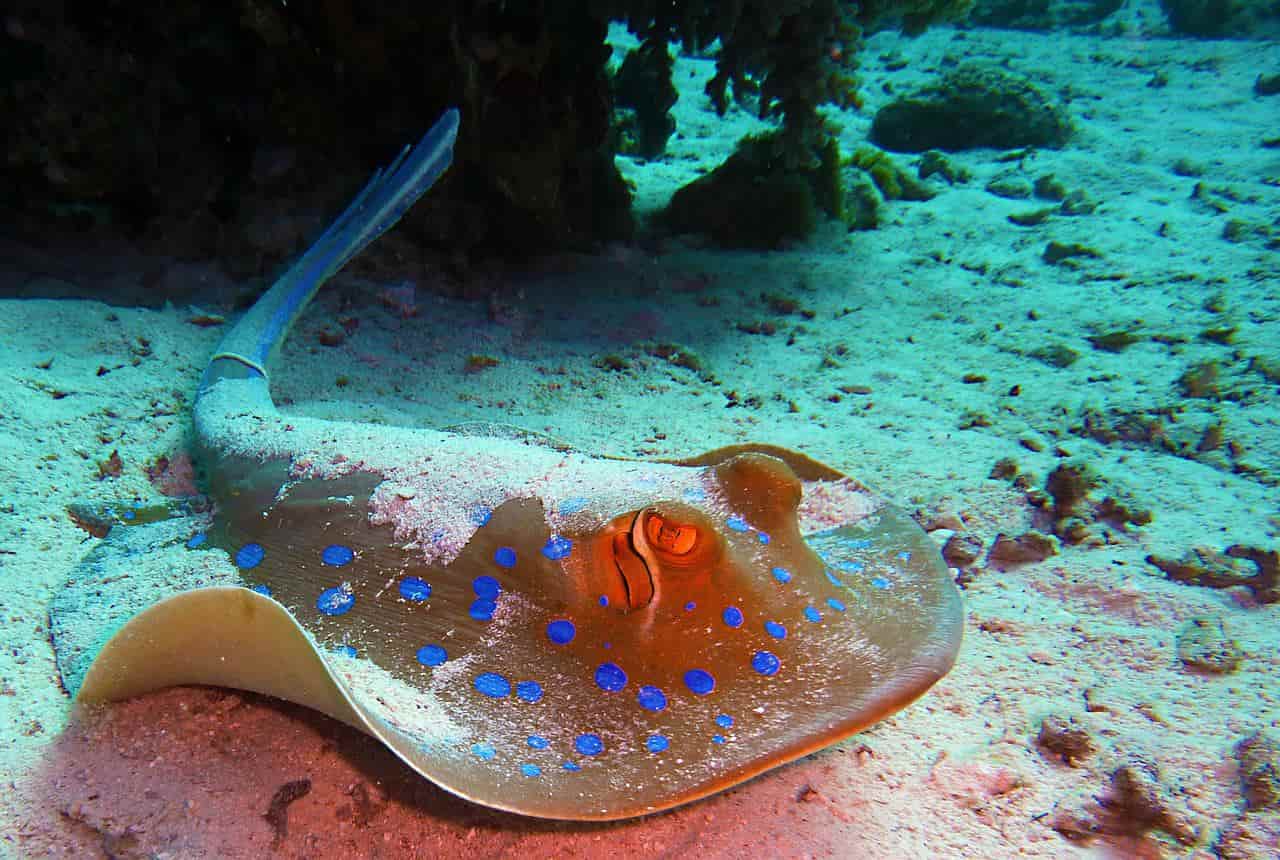Greece is one of the most visited destinations in Europe. The Greek beaches, architecture, cuisine, and civilization are some highlights that people often visit to learn about Greece. The country’s history is exceptional, and you will need a proper time before you can familiarize yourself with the country.
There are a plethora of white sandy beaches that you can enjoy during your visit. However, there are also certain dangers you have to be aware of. Specifically, there are quite a few dangerous animals in Greece and here is the list of the most common you will encounter during your trip.
Table of Contents
Bees, wasps, and hornets

These insects will cause severe damage to your body because their bites often deliver a huge amount of venom and can cause dangerous effects on the body. There are plenty of bees in Greece and you will find them during the autumn period on flowers around the country.
These bees are usually aggressive and will sting you even when they are not provoked. Beestings usually result in swelling, pain, fever, and allergic reactions. On the other hand, the wasps are the worse version of the sting because they have an excruciating sting when they attack you. The hornets are the worst because their venom is like fire on your body. If you are stung by these creatures, you should seek immediate medical attention.
Moray Eels

Greece has a fantastic coastline and one of the places where the Greek border interacts with the waters is the Mediterranean shores. The moray eels thrive off the coast of the Greek islands and there are other places where you are likely to encounter them in the Ionian and Aegean region. You should be careful if you are planning to enjoy some water activities and sports because these areas are very critical and the eels inhabit the area.
Further reading: Hiking trails in Corfu, Greece
The creatures are characterized by their slipper nature and perfect camouflaging techniques, and since they hide well, there is a high chance that they might unknowingly attack you. The bites from the moray eels are very painful and the creature will release toxins into your body this will cause blood-clotting, pain in the affected area, hallucinations, and difficulty breathing among other severe conditions that could lead to death if the situation is not dealt with immediately. If a snake bites you, then you should seek immediate medical attention because it can be one of the most dangerous phenomena.
Ohia snakes
The Ohia snakes are known to be the most dangerous in Greece and you should ensure that you are staying in an environment that does not have these snakes. These snakes are commonly called horned vipers and they might not be fatal because their venom is known to cause cell damage and eventually tissue damage. The bites from these snakes may not result in death for adults however for young children it can be fatal because it can affect the muscular system and this will result in heart muscle stopping and difficulty breathing.
Read more: Dangerous animals in Turkey
Some of the symptoms of the Ohia snakebite include swelling of the affected area, difficulty breathing, numbness, headaches, and severe fever. These snakes are aggressive in nature, they are known to have a very good camouflaging technique and you will find them in the grasslands. Since they often camouflage well, you are likely to step on them, which is when the biting occurs. You should wear proper hiking shoes if you are going to explore different parts of Greece. If the snakes attack you, then you should seek immediate medical attention.
Scorpions

Scorpions are some of the most common creatures that you will find in Greece. Whether you are going to explore the capital, Athens or you are going to explore the Greek islands. It is important that you should avoid these creatures at all costs because they are venomous and can cause death. If you love the outdoor environment, then you should ensure that the areas that you are exploring do not have arachnids because scorpions are known to sting and they can cause severe effects for people who are highly allergic to their venom.
Further reading: Find out the most dangerous snakes in Greece
Some of the side effects of the venom from the scorpions include inflammation, excruciating pain, swelling, and difficulty breathing. If you want to reduce the chances of being stuck by scorpions, you should ensure that the area you are exploring is scorpion-free. When leaving your hotel, you should check your bags and shoes because they like to hide in dark areas. In a situation where a scorpion attacks you then you should seek immediate medical attention.
Ticks
There are different places where you are going to encounter a myriad of creatures and one of them is ticks. There are so many ticks in the Greek grasslands and you should be sure to avoid such areas. If you want to go hiking in central Greek or other places, you should be sure to check out the area because there could be a thriving area.
The forest in Greece is a major habitat for these ticks and they are tiny creatures that are either brown or black depending on the habitat. These ticks usually attach to the host where they suck blood and they suck until they are full before detaching. When the ticks detach they fall on the grass where they lay eggs and they mature to become more ticks.
The ticks are carriers of dangerous bacteria and microorganisms known to cause Lyme’s disease. If you are exploring the Greek islands and the mainland, then you should be wary of these tiny creatures.
Brown bears
Brown bears are some of the most endangered species in Europe and there used to be a large population in the past. However, civilization and the use of different places for other activities have changed the areas that these bears inhabited. There are slightly over 150 brown bears in Greece and if you are exploring the Rodopis Mountains then you are likely to encounter them.
The existence of brown bears in Greece has been largely affected by the practice of so many people hunting them for fur. However, if you want to check out these creatures, then you should have a guide who will take you to the mountain ranges where they are known to thrive.
Further reading: Snorkeling in Santorini
The brown bears are predatory and ready to attack immediately they see you; you should be well prepared. If you find yourself in areas that brown bears inhabit, then you should be wary because these creatures will attack without notice. The brown bears have very sharp claws and teeth; hence when they attack, they will crush you. Besides, they are huge and can weigh tons. If the bears attack you, then you should seek immediate medical advice.
Portuguese man o war
The Portuguese man o war is one of the most dangerous creatures you will encounter in the Greek waters. This creature is closely related to jellyfish and is known to deliver some dangerous venom. The Portuguese man o war is made up of tiny organisms that function differently and they merge to form one huge creature.
There is no aquatic creature you should avoid like the Portuguese man o war because it is known to cause dangerous attacks on humans. This creature has been known to sting people from different parts of the world and you should take ultimate care if you are trying to explore some of the Greek waters because you might encounter it.
They will leave red long marks on the body and the wounds are often infected with bacteria, which can turn ugly and if not treated could lead to amputation. If you are stung by the Portuguese man o war, you should wash the area with seawater to relieve the pain. Immediate medical attention is mandatory if you do not want the wounds to develop into something serious. Some of the venom symptoms from the Portuguese man o war include burning sensations, allergic reactions, swelling, and breathing difficulties among other dangers.
Stingrays

The stingrays are some of the most dangerous creatures you will encounter during your trip to Greece. The stingrays usually thrive in the Mediterranean Sea and may not be aggressive towards humans. However, if they feel that their habitat is being attacked, they are likely to strike back. If you swim in the waters, you must avoid provoking these creatures because they can attack you immediately. The attack causes excruciating pain and the barbed tails ensure that the most venom is delivered to the victim fully.
Further reading: Guess what’s the most dangerous animal in Europe?
Since these stingrays have razor-sharp fangs, they will inflict dangerous wounds on your body and you should stay away from the areas they like exploring. Some of the venom symptoms from the stingrays include diarrhea, vomiting, muscle pain, inflammation, and excruciating pain, among other dangerous side effects. If you are going to explore the Greek sea and oceans, then you should ensure that you are doing it in an environment that will not because you harm. If the wounds are left untreated, they could lead to amputation. If the stingrays attack you, then you should seek immediate medical attention.
Leopard Snake
The leopard snake is among the dangerous creatures you will see during your trip to Greece. There are different snakes that you are going to encounter in the Greek islands of Crete. This snake is very colorful and the amazing colors might fool you to think that it is a harmless creature. However, you should watch out for them because they are dangerous even if they are not venomous. It can nip or deliver a sharp rattle, which can cause injuries to your soft tissues.
Sharks
Sharks are some of the creatures that you are likely to encounter on your trip to Greece are sharks. The Mediterranean waters and surrounding areas. Some of the sharks that have been seen on the islands of Crete. If you visit the islands of Greece, you should watch out for the sharks because you are likely to encounter these dangerous creatures.
There are different types of sharks that you are likely to find in Greece, and you are not limited to the normal species found in normal places. The sharks are predatory and you must be cautious because you do not want to deal with major injuries caused by the beasts of the oceans. Although shark attacks are rare, you should not gamble with your safety. Always be on the lookout.
FAQ about dangerous animals in Greece
1. Are there any venomous snakes in Greece?
Absolutely, Greece is home to a diverse range of snake species, including the venomous European adder (Vipera berus) and the Montpellier snake (Malpolon monspessulanus). These snakes can be found in various habitats, from open fields to rocky hillsides. While their bites are rarely fatal, it’s essential to exercise caution when encountering any wild snake.
2. Are there any dangerous spiders in Greece?
Yes, Greece has several spider species, but only a few can be considered potentially dangerous, such as the Mediterranean black widow (Latrodectus tredecimguttatus). These spiders can be found in warm, dry areas, and their bites can cause pain and discomfort. It’s crucial to keep a safe distance from these spiders and seek medical attention if bitten.
3. Are there any large predators in Greece, like bears or wolves?
In Greece, you can encounter various predators in the wild, such as brown bears (Ursus arctos) and wolves (Canis lupus). These animals are usually shy and will tend to avoid humans, but it’s essential to remain aware of their presence when venturing into remote areas. Avoid hiking or camping alone and make sure to take measures to deter wild animals from approaching your campsite.
4. Do scorpions pose a threat in Greece?
While scorpions are present in Greece, most species are not dangerous to humans. The European yellow-tailed scorpion (Buthus occitanus) is the most common and can deliver a painful sting, but their venom is typically not life-threatening. However, if you are stung by a scorpion, it’s crucial to seek medical attention immediately.
5. Are there any dangerous marine animals along the Greek coast?
Along the Greek coast, you may encounter several potentially dangerous marine animals, such as jellyfish species like the lion’s mane jellyfish. Their stings can be painful and, in rare cases, even life-threatening. Always check for warning signs at beaches and seek medical attention if you experience any adverse reactions.
6. Are there any dangerous insects in Greece, like bees or wasps?
Yes, Greece has a variety of stinging insects, including bees and wasps. While their stings are usually not life-threatening, individuals who are allergic to insect venom must exercise caution. In case of an allergic reaction, seek immediate medical attention.
7. What precautions should I take to stay safe from dangerous animals in Greece?
To stay safe, it’s advisable to learn about the local wildlife, maintain a safe distance from wild animals, and avoid provoking or feeding them. When hiking or camping, keep food securely stored to deter wildlife from approaching your campsite. Additionally, be aware of your surroundings and know the location of the nearest medical facilities in case of an emergency.
When exploring Greece’s stunning natural landscapes, it’s essential to respect the local wildlife and their habitats. Keep a safe distance from wild animals, avoid feeding or provoking them, and always store food securely. By taking appropriate measures and exercising caution, you can safely enjoy all that Greece has to offer.
In conclusion, Greece guarantees to deliver one of the best experiences to you when you visit the country and the islands at large. You will have a time of your life when you explore the different parts of the country.


